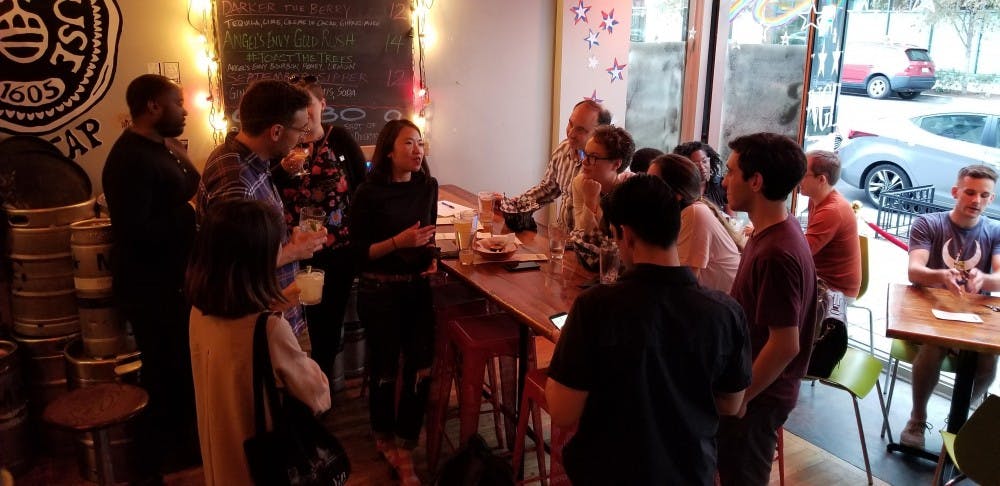WAMU launched its new weekly podcast in September that explores the food and history of D.C. newcomers and natives alike.
Hosted by Ruth Tam and Patrick Fort, “Dish City” delves into a new segment on the city’s varied cuisines each week and takes listeners on a personal exploration of D.C.’s complexity.
“It’s easy to think of food in the Instagram sense of it, of which is the best restaurant,” Fort said. “We're interested in what it says about where we live, and how and why we live the way we do.”
“Dish City” was a whim of an idea that ended up giving the creators the chance to explore the culinary scene in D.C. and challenge their understandings of D.C. food culture. For newer and older Washington residents alike, the podcast reveals unseen parts of the city and revels in food culture.
In each of the first two episodes, the hosts struggle with what they find, putting themselves into uncomfortable situations to learn about D.C. food. Tam and Fort both emphasized that they’re not typical foodies by any means.
The hosts aren’t afraid of confrontation when seeking out their stories, either. In the second episode, which covers Ethiopian food in D.C., Tam finds herself in an argument about “American-izing” food with acclaimed Ethiopian chef Marcus Samuelsson.
“This conversation still makes me squirm,” Tam said, reflecting on a moment where Samuelsson stopped her after she asked about Ethiopian food’s status as ethnic food, telling her she was “totally off base.”
This conflict, which the hosts acknowledge as having been uncomfortable, underscores the whole tone of the podcast — they’re upfront with their own thoughts, but always open-minded.
In the very first episode, which covers the iconic Ben’s Chili Bowl, the hosts explore the issues of gentrification as it relates to restaurants. After checking out a rival restaurant named after the famous dish from Ben’s, Half Smoke, Tam and Fort were surprised by the intentions of the new restaurant. This underscores the purpose of the podcast, which is exploring the idea that food can open new avenues.
“You come out with a greater appreciation for the food and culture and having a vested interest in one more,” Tam said.
This love of the food and city is what convinced their colleague at WAMU Poncie Rutsch to take on a producing role with the show.
“I love it when people love this city as much as I do,” said Rutsch. “I grew up in Chevy Chase and they still manage to blow my mind with some of this.”
“Dish City” is always tied to the food it covers, and the hosts make it clear that they believe in the joyful potential of food and food culture.
“We focus on some things that are a little bit heavier in terms of getting into history, or like awkward feelings,” Tam said. “But you don't approach food as if it were like a thesis you're writing — we want to have fun with it too.”
At 20 minutes per episode, Dish City is tailor-made for bingeing, allowing the hosts’ vision for a full-bodied picture of D.C. to be more easily consumed.
“You don't get a full picture of D.C. after eating at just one of these places,” Tam said.
“You have to be willing to explore the city and meet new people and try new things,” Ford added.





